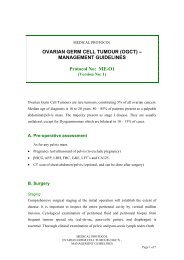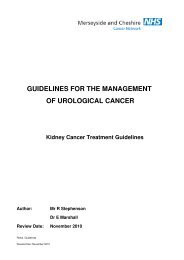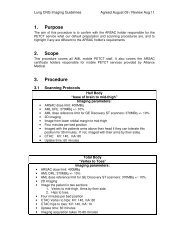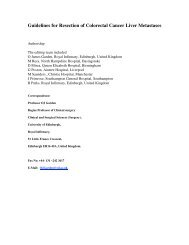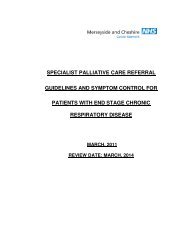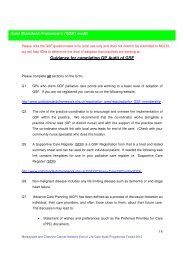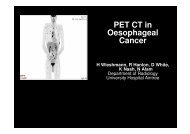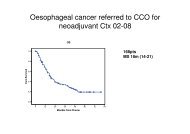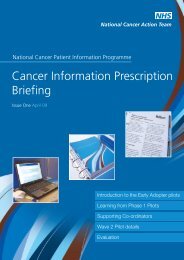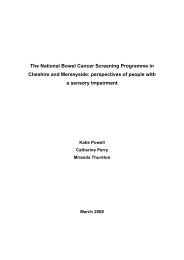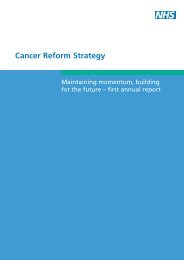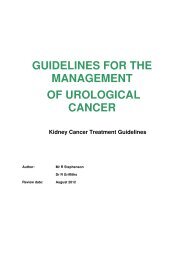Cancer Reform Strategy - NHS Cancer Screening Programmes
Cancer Reform Strategy - NHS Cancer Screening Programmes
Cancer Reform Strategy - NHS Cancer Screening Programmes
- No tags were found...
You also want an ePaper? Increase the reach of your titles
YUMPU automatically turns print PDFs into web optimized ePapers that Google loves.
CHAPTER 5: LIVING WITH AND BEYOND CANCER 71for implementation of this guidance. However,the extent of implementation to date has beenmixed and the target of full implementation byDecember 2007 will not be met by all cancernetworks. In recognition of some of thedifficulties faced by networks, we haveextended the deadline for implementationto December 2008. We remain absolutelycommitted to the full implementation ofthe guidance. Chapter 9 sets out how goodcommissioners should use the tools at theirdisposal to ensure this happens. The <strong>Cancer</strong>Action Team will continue to have animportant role to play in developing andspreading good practice in this respect.5.5 However, our determination to improve theexperience of people living with and beyondcancer does not begin and end with achievingfull implementation of the NICE guidance. Wewant to empower patients to:●●●Fully understand about their cancer and itsmanagement;Be involved in decision making as they wish;andMake choices about their care as they see fit.5.6 This chapter sets out a range of initiatives toimprove patients’ experience of living with andsurviving cancer. In particular, it focuses on:●●●●●Information, communication, decisionmaking and choice;Coordination and continuity of care;Psychological support;Supportive and palliative care;The critical importance of Clinical NurseSpecialists (CNSs);●●Surviving cancer; andMeasuring patients’ experiences as amechanism for improving the quality ofservices.Information, communication,decision making and choice5.7 Patients, health professionals and cancercharities who were consulted during thedevelopment of this strategy stronglyrecommended that the issues of information,better face-to-face communication and supportfor decision making should be given the highestpriority with regard to actions to improvepatient experience. Integrated action on theseareas should now be taken at both national andlocal levels.Information and communication5.8 Access to high quality information is aprerequisite for patients to be able to participatein decision making about their care and to reducetheir fear of cancer. Providing information,alongside the support to understand and act onthat information, can empower patients to retainor regain control over lives.5.9 Individual patients will want to acquireinformation in different ways. For many, face-tofacecommunication with a health professionalthey trust is of paramount importance. Manywill also wish to supplement face-to-facecommunication with other types of information.Some will want to discuss their condition withothers who have experienced similar challenges.Face-to-face communication5.10 Evidence has shown that thecommunication skills of health professionals canbe improved by training. Good communicationskills underpin all elements of care and willenable staff to encourage patients to discusstheir needs and preferences.●●Appropriate training for healthcareprofessionals;Helping patients meet the cost of cancer;5.11 A national programme for advancedcommunication skills training for seniorhealthcare professionals has been developed forcancer. Since 2003, 150 facilitators have beentrained to deliver three day courses for senior



